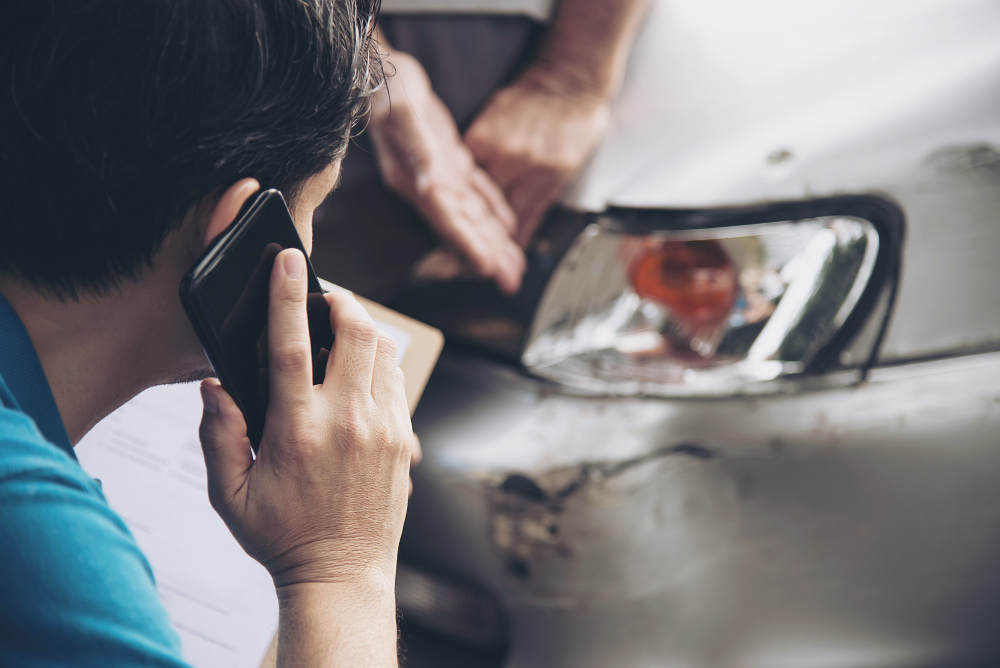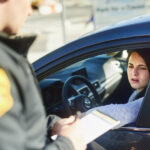What to Do After a Car Accident in Texas: A Comprehensive Guide from an Expert Car Accident Lawyer
Car accidents are an unfortunate reality on Texas roads, and knowing how to handle the situation can make all the difference in minimizing stress, protecting your rights, and ensuring you’re legally covered.
Whether it’s a minor fender-bender or a serious collision, understanding what to do after a car accident in Texas is crucial.
In this guide, we’ll walk you through the steps to take immediately following a car accident and offer expert insights from a car accident lawyer to help you navigate the legal process.
Immediate Steps After a Car Accident in Texas
Ensure Safety First
After any accident, your priority is to ensure the safety of everyone involved. Move your vehicle to a safe location if possible, such as the shoulder of the road, to prevent further collisions.
If someone is injured, call emergency services immediately for medical assistance. This is especially critical if you’ve been involved in a Texas car wreck.
Call the Police
Don’t rely on the other driver to call 911 to report the collision; do it yourself. The other party may discourage you from involving authorities, citing concerns like their insurance rates or lack of visible damage.
The officer will create a Texas Crash Report, documenting the contact and insurance information of all drivers involved. Any traffic citations issued can be valuable evidence for an attorney when pursuing compensation for any victims involved.
Exchange Information

Gather and exchange information with the other party involved in the accident. Be sure to collect:
- Name and number of the other driver or drivers
- Insurance details
- Vehicle details (license plate number, make, and model)
- Names and contact information of any witnesses
This documentation will be useful for your insurance company and your car accident lawyer.
Take Photos and Document the Scene
Capture photos of the accident scene, vehicle damage, road conditions, traffic signs, and any visible injuries. These photos will help create a detailed record of the car accident aftermath and can be crucial in proving fault or supporting your insurance claim.
Seek Medical Attention
After an accident, it’s crucial to get checked by a medical professional, even if you feel fine. Certain injuries, like whiplash or abdominal damage, might not show up right away. A medical report can also serve as evidence if you need to file a personal injury claim.
Notify Your Insurance Company
Notify your insurance provider of the collision as soon as you can. Provide them with accurate information but avoid making statements that could be misinterpreted.
Legal Considerations in the Car Accident Aftermath
After a car accident, you may be left dealing with insurance companies, medical bills, and potential legal disputes.
Fault and Liability in Texas Car Accidents
Texas is a fault state, meaning that the driver who is determined to be at fault for the accident is financially responsible for covering damages. These can include medical bills, property damage, and other losses incurred by the other party.
An expert lawyer can help investigate the case, determine liability, and represent your interests to ensure you aren’t unfairly held accountable for damages. This is particularly important when seeking car accident compensation for your losses.
Handling Insurance Claims
Handling insurance claims is frequently the most difficult part of the process that follows an automobile accident.
An accident lawyer can negotiate with the insurance companies on your behalf, ensuring that you receive a fair settlement that covers all your medical expenses, vehicle repairs, lost wages, and other damages related to Texas auto accidents.
How to Handle a Car Accident Claim in Texas
Filing a car accident claim in Texas involves several steps, from notifying your insurance company to potentially pursuing a personal injury lawsuit. Here’s how to navigate the claim process:
Filing a Claim
After reporting the accident to your insurance company, you’ll need to file a formal claim for property damage or injuries. If the other driver was at fault, their insurance should cover your losses. If you’re dealing with an injury claim from a car accident, be prepared to provide detailed documentation.
Documenting Your Losses
Keep detailed records of all expenses related to the accident, including medical bills, vehicle repair estimates, lost wages, and more. This documentation will be essential for proving your auto accident injury claim.
Negotiating a Settlement
Insurance companies will often offer a settlement that is lower than what you may deserve. Before accepting any settlement, consult a car accident lawyer to ensure you’re not being shortchanged.
Filing a Lawsuit if Necessary
In the event that a just settlement is not achieved, you could have to sue for personal injuries. A car accident lawyer can guide you through the court process and represent your interests.
Contact a Personal Injury Attorney
If you’ve been involved in an accident in Texas and need expert advice on what to do after a car accident in Texas, contact Mokaram Law Firm today..
Whether it’s a Texas car wreck or an Austin wreck report, we have the expertise to handle your case effectively.
Call us at (281) 609-9224 for a consultation and let us guide you through the car accident aftermath with confidence and peace of mind.
FAQs
What to do in a wreck?
Remain composed, look over yourself for injuries, and, if you can, get to a safe place. Call 911, exchange information with the other driver, and document the scene with photos.
What to do in a traffic accident?
Ensure everyone’s safety, call emergency services, and gather contact and insurance information. Take photos of the scene and report the accident to your insurance company.
Do you have to report an accident to your insurance in Texas?
Yes, you should report any accident to your insurance as soon as possible, even if you’re not at fault, to ensure proper coverage and compliance with policy requirements.
What to do immediately after a car accident?
Make sure no one is hurt, get to a safe place, and dial 911. Notify your insurance company, take pictures of the incident, and trade information with the other motorist.
Recent Posts
-
 21 Feb 2025Is a DUI or DWI Considered a Felony?
21 Feb 2025Is a DUI or DWI Considered a Felony? -
 21 Feb 2025How Long Does a Speeding Ticket Stay on Your Record?
21 Feb 2025How Long Does a Speeding Ticket Stay on Your Record? -
 18 Feb 2025Delta Plane Crash at Toronto Pearson Airport: Bombardier CRJ900 Overturns
18 Feb 2025Delta Plane Crash at Toronto Pearson Airport: Bombardier CRJ900 Overturns -
 13 Feb 2025Is It Illegal to Drive Without Insurance in Texas?
13 Feb 2025Is It Illegal to Drive Without Insurance in Texas? -
 13 Feb 2025How Self-Driving Cars Could Increase Accidents
13 Feb 2025How Self-Driving Cars Could Increase Accidents -
 30 Jan 2025Washington, D.C. Plane Crash: Investigation Underway Following Collision with Black Hawk Helicopter
30 Jan 2025Washington, D.C. Plane Crash: Investigation Underway Following Collision with Black Hawk Helicopter -
 22 Jan 2025How Do People Who Text and Drive Get Punished in Different States?
22 Jan 2025How Do People Who Text and Drive Get Punished in Different States? -
 22 Jan 2025Do Pedestrians Have the Right of Way?
22 Jan 2025Do Pedestrians Have the Right of Way? -
 20 Jan 2025Are Radar Detectors Legal? Everything You Need to Know About Radar Detector Laws
20 Jan 2025Are Radar Detectors Legal? Everything You Need to Know About Radar Detector Laws -
 20 Jan 2025What Age Can You Get Your Driver's License in Texas?
20 Jan 2025What Age Can You Get Your Driver's License in Texas? -
 07 Jan 2025Legal Help for Families Affected by Jeju Air Flight 2216
07 Jan 2025Legal Help for Families Affected by Jeju Air Flight 2216 -
 17 Dec 2024Is Lane Splitting Legal in Texas?
17 Dec 2024Is Lane Splitting Legal in Texas?
